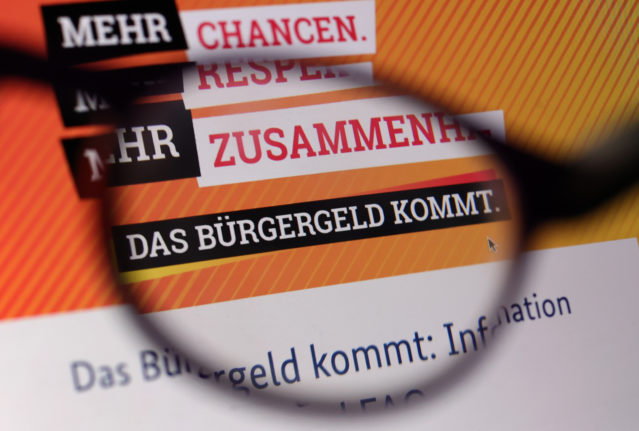Security experts Kisi analyzed 40 cities worldwide in a bid to find out whose residents have the most well-rounded work-life balance, in terms not only of work intensity, but also their livability and the well-being and rights of citizens.
And they found Munich had one of the best scores compared to cities across the world. Two other cities in the Bundesrepublik are also in the top 10.
Researchers looked at a series of factors related to the amount of time a person dedicates to their job – such as total working hours, commuting, and holiday days taken.
They then evaluated residents' access to state-funded health and welfare programmes, as well as institutional support for gender equality and friendliness toward the LGBT+ community.
Lastly, researchers determined each city’s livability score by examining citizens’ overall happiness, safety, and access to wellness and leisure venues, which allowed them to assess whether their residents can enjoy their environment after office hours.
Which cities came out on top?
In Germany, Munich, Hamburg and Berlin all ranked in the top 10 of the most livable cities.
READ ALSO: The ultimate guide to living on a budget in Munich
But Helsinki in Finland received the highest rating overall. In fact, the Finnish capital is the only city to achieve a satisfaction score of 100. It also received an overall score of 100. That's down to a number of factors.
People who work full time in Finland spend a comparatively low 40.2 hours a week at the workplace, plus holiday entitlement starts at 30 days per year. Employees also get a total of 1,127 days of paid parental leave.
Health care is also above average, with Helsinki ranked sixth behind Sydney, Melbourne, Tokyo, Milan and Oslo on that point, with 86.7 out of 100 points. Helsinki ranks even better (fourth place) in terms of green spaces. The Finnish city with 630,000 citizens is also deemed very good in terms of safety, with 93.3 out of 100 points.
Here's the top 10 cities with the best work-life balance according to the study:

Graph produced by Statista for The Local.
Munich has very low unemployment

After Helsinki comes Munich, in the south of Germany, which scored 98.32 points overall. In the Bavarian capital, people have to work a little longer (41 hours a week), but the unemployment rate is much lower than in Helsinki (2.3 to 6.9 percent).
The average arrival time for workers in Munich is 8.46am and the commuting time (one way) is 27 minutes.
Germany fares worse on holiday entitlement as employees have to make do with a minimum of 20 holiday days per year. However, workers in Munich take on average 29.7 days a year off.
Meanwhile, parents are entitled to 406 days of paid leave.
Health care in Germany also receives a lower score than in Helsinki (83.1 points, 12th place). Access to mental healthcare receives a lower score of 53.7 points.
All three German cities scored a happiness rating of 92.7 points out of 100.
Munich is deemed particularly safe – it scored 94.8 points (fourth place in this category). Meanwhile city stress gets a comparatively low score of 15.8 in Munich.
It's not surprising that Munich is so high up in the list. A recent study found Munich has the highest quality of life in Germany.
READ ALSO: Three German cities ranked in the top 10 places to live
Hamburg third lowest stress score
 A view of Hamburg. Photo: Depositphotos/SergiyN
A view of Hamburg. Photo: Depositphotos/SergiyN
With a total of 93.57 points, Hamburg is fourth in the list. The Hanseatic city had the third lowest stress rating (20.4) after Munich and Sydney.
In Hamburg employees also have to work 41 hours a week on average, and the city has an unemployment rate of 4.1 percent.
Workers in Hamburg arrive to work on average at 9.32am and the commuting time (one way) is 29.5 minutes. When it comes to vacation days, Hamburg employees take on average 29.6 days off a year.
The safety score in Hamburg is a bit lower than Munich at 89.4.
Late start to work in Berlin

The Oberbaumbrücke in Berlin. Photo: DPA
In terms of work-life balance, Berlin ranks sixth among the most livable cities. Germany's capital has a total of 88.92 points overall.
The average arrival time to work for Berlin employees is 9.53am – quite a bit later than the other German cities (although people in Washington DC, Hong Kong and Houston all start work slightly later according to the research).
The average commuting time (one way) is 32.2 minutes and the city stress score is much higher than in the other German cities at 45.7.
The unemployment rate is comparatively high in Berlin at 6.1 percent (34th place in the list). On the other hand, Berlin has a high leisure score rating (82.9 points, 8th place).
The safety rating for the Hauptstadt is 90.7 (13th position in this category compared to the other cities).
Which cities have the worst work-life balance?
The most overworked cities according to the ranking are Tokyo, Singapore, Washington DC, Kuala Lumpur and Houston.
In the study, the US was the only country not to offer paid annual leave at the government level. The study found that employees took an average of just 10 days off – still scoring better than cities such as Singapore and Hong Kong where the average was seven days.
The study pulled statistics and research from data provided by the Organisation for Economic Co-operation and Development, Eurostat, the International Labour Organization and the World Health Organisation, among others.
The research aims to shine a light on work-life balance, government policies and infrastructure.
What do you think about the work-life balance in Germany? Let us know: [email protected]




 Please whitelist us to continue reading.
Please whitelist us to continue reading.
Member comments